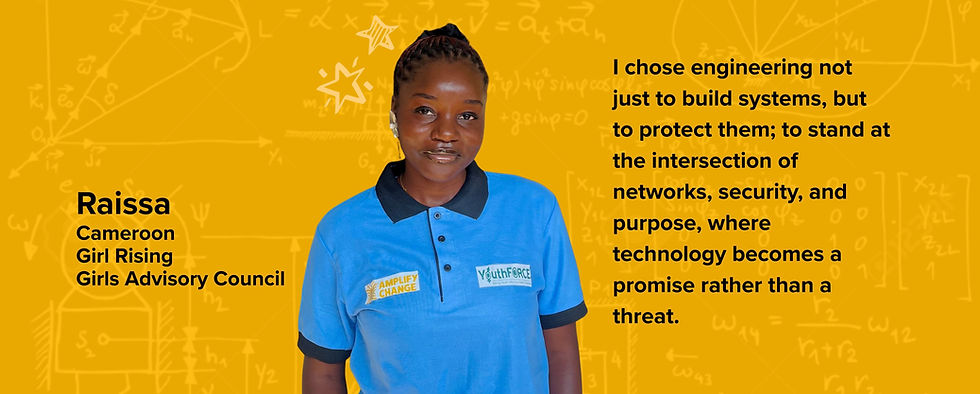Tell Us Your Story!
- Sep 13, 2023
- 2 min read

Education is the key that unlocks countless opportunities, but not everyone has equal access to this essential resource. Barriers such as gender bias and racial discrimination still withhold countless of people from fairly accessing quality education.
Last month, Girl Rising CEO Christina Lowery and President Nidhi Shukla unpacked the recent UNDP GNSI report that indicates that progress on shifting gender bias has been stagnant for over a decade. Entrenched gender biases cast a dark shadow over the prospects of millions of young girls worldwide.
Along with gender bias, racial discrimination, and socioeconomic impacts also withhold millions of young people across the world from accessing education in a way they want to reach their full potential. The US Supreme Court's decision this summer effectively ended race-conscious admissions in higher education, removing a way for US colleges and universities to advance education equity and promote more diverse student bodies. In the wake of that decision, the first high school seniors to apply to college are grappling with conflicting guidance, college admission teams are looking at alternative ways to work toward fair admissions and college guidance counselors are working through uncertainty. Occidental College Student, Obama Scholar, and Education Rights Advocate Raja Bella Hicks shares her story on how affirmative action has positively impacted her family and highlights vital actions that colleges and universities can take for education equity.
Educational equity offers economic mobility to students, communities, and their families. As we navigate the seismic shifts from the UNDP GNSI report to the recent Supreme Court decisions on affirmative action, which will impact students’ economic and educational opportunities, we invite you to share anecdotes of how you empower your students and address education inequity in your school and learning communities. What’s your story?
Tell us in the comments below what your thoughts on existing and emerging educational barriers and what we can all do to combat them.




Comments